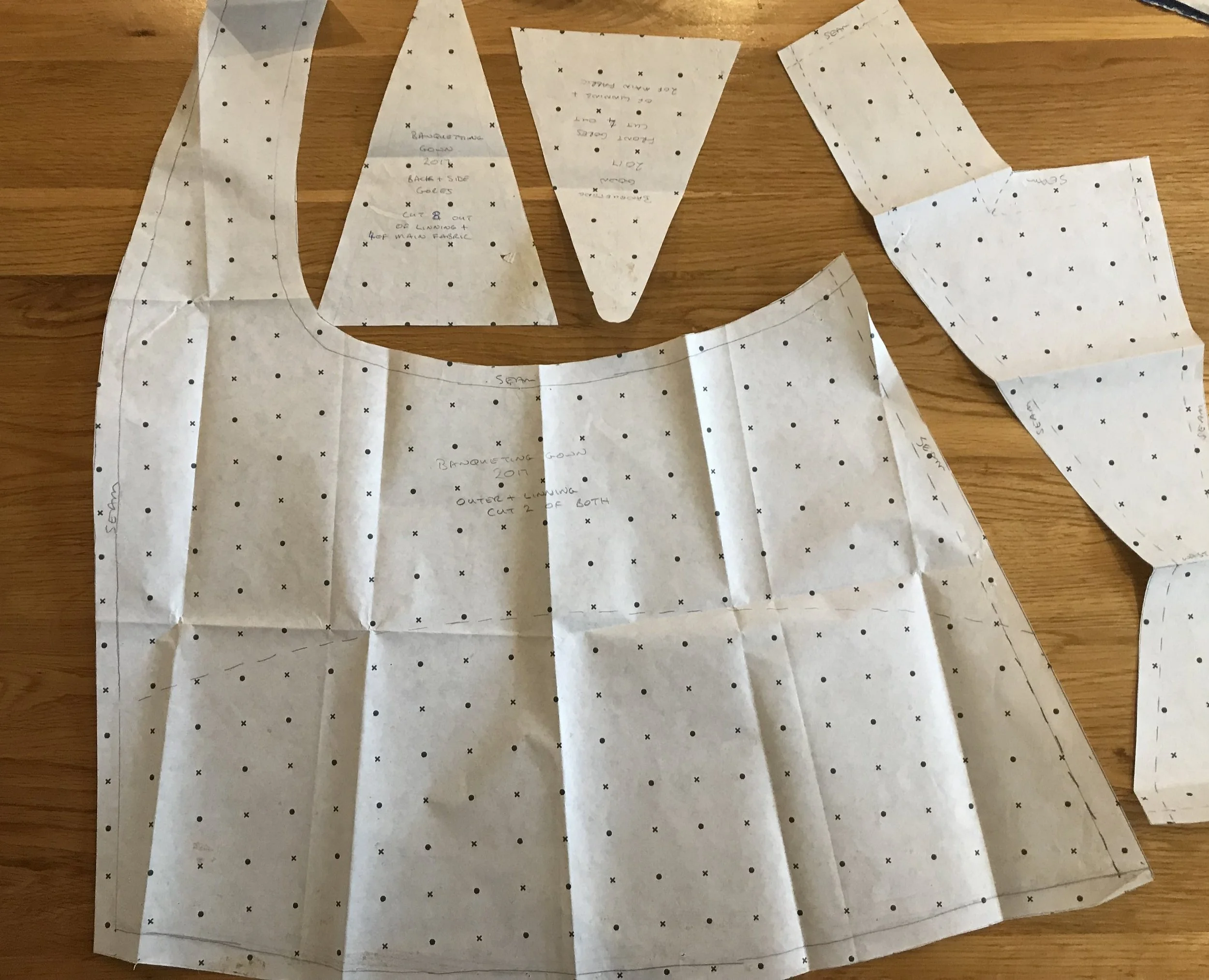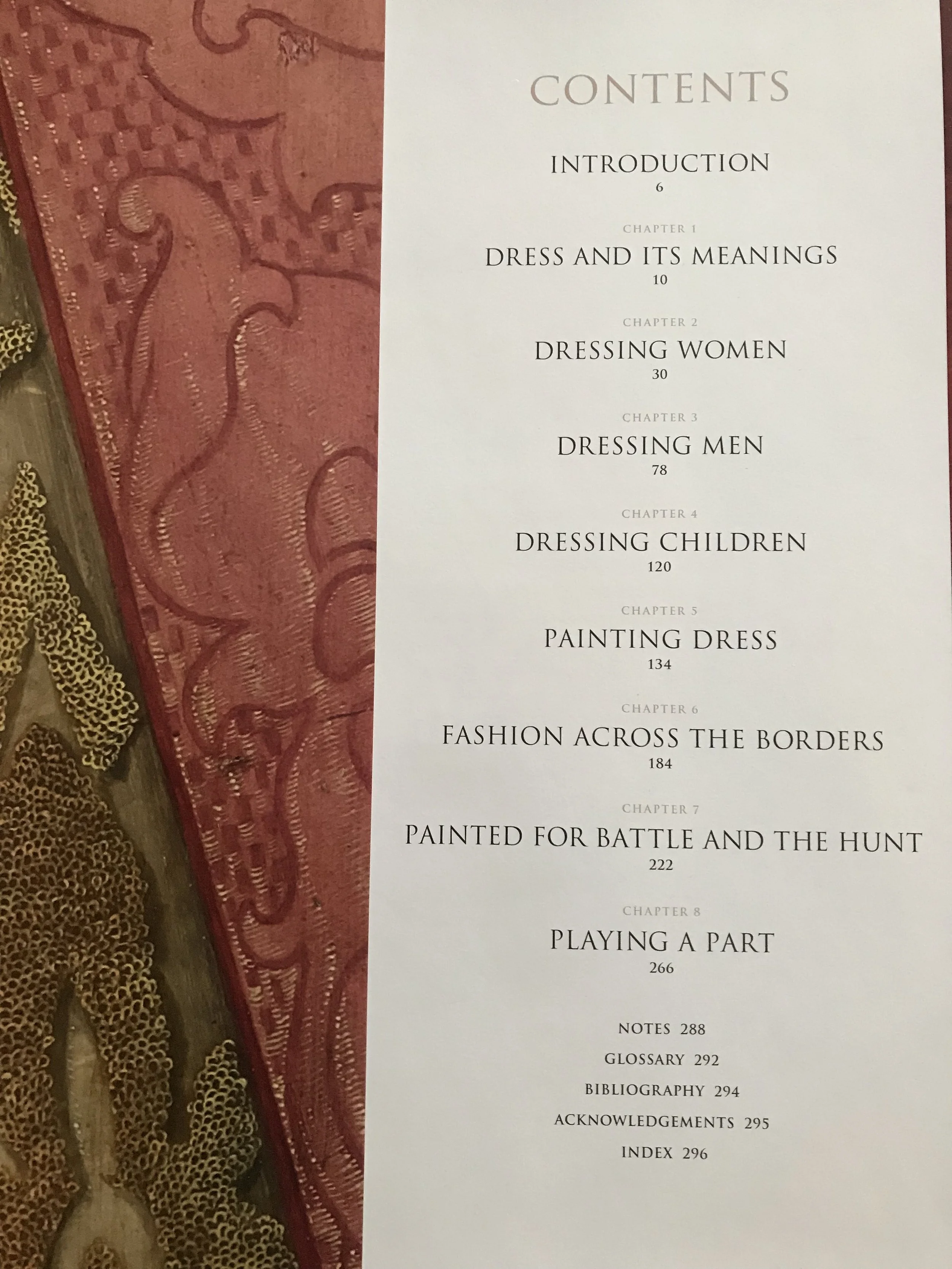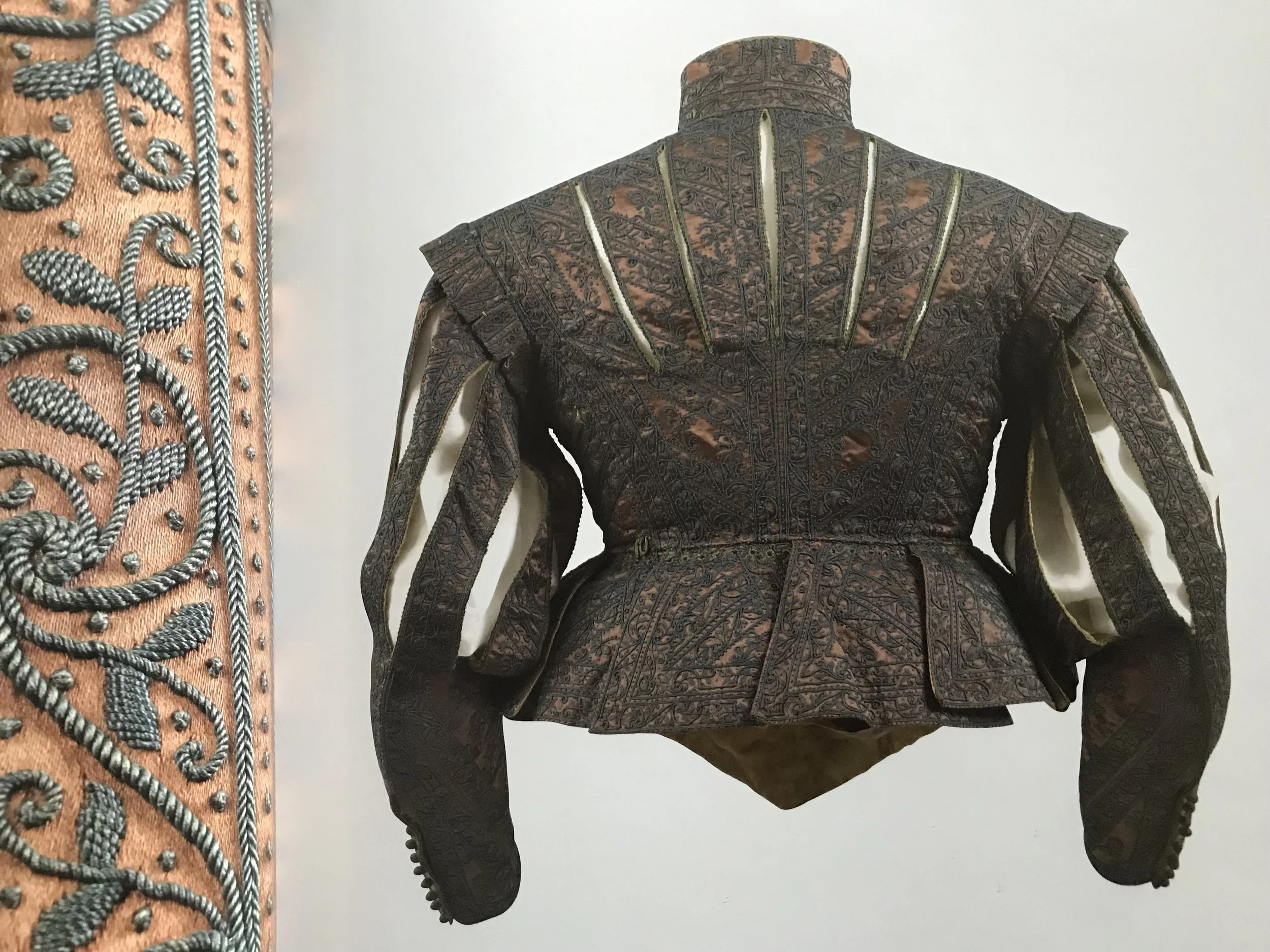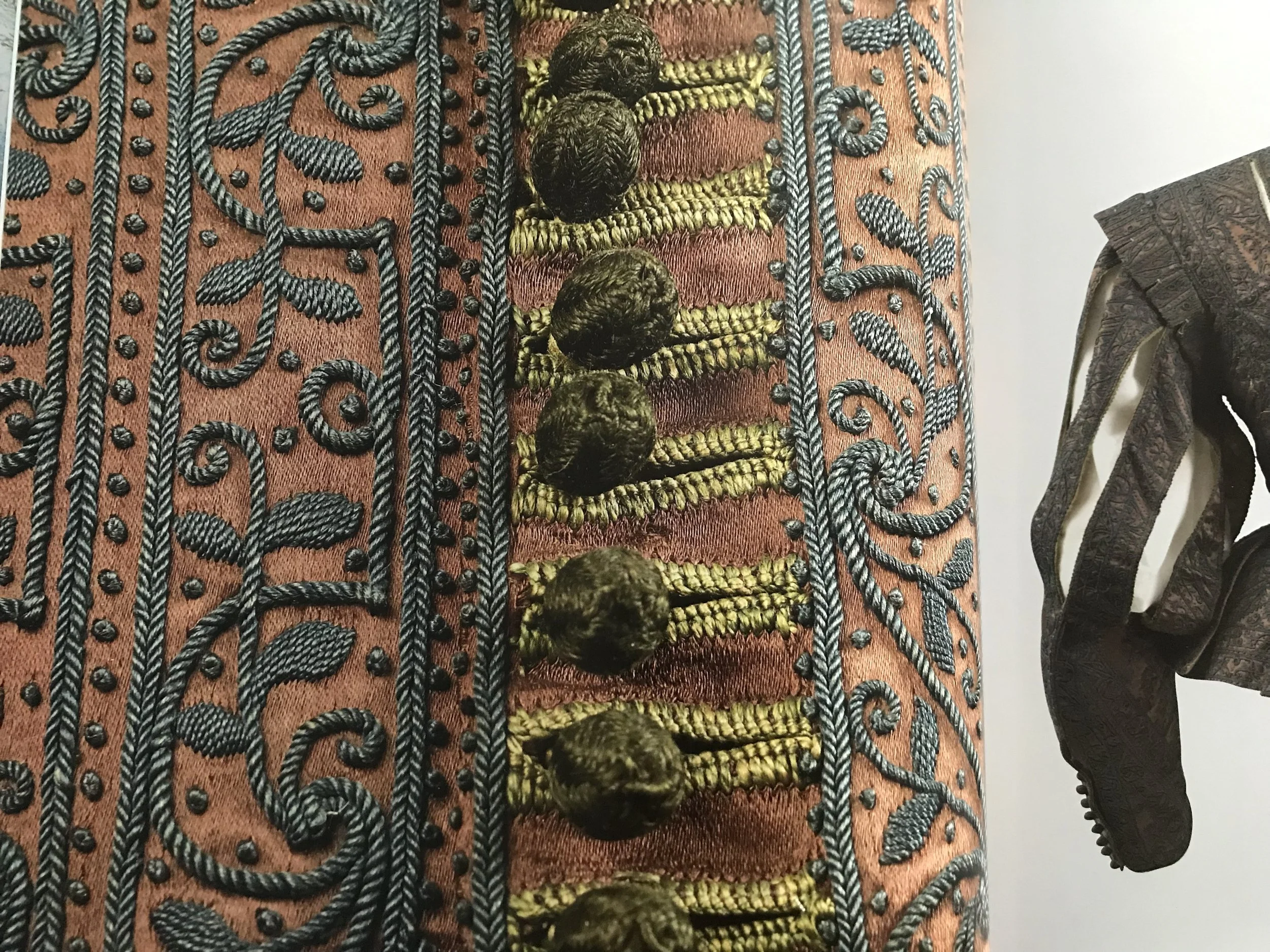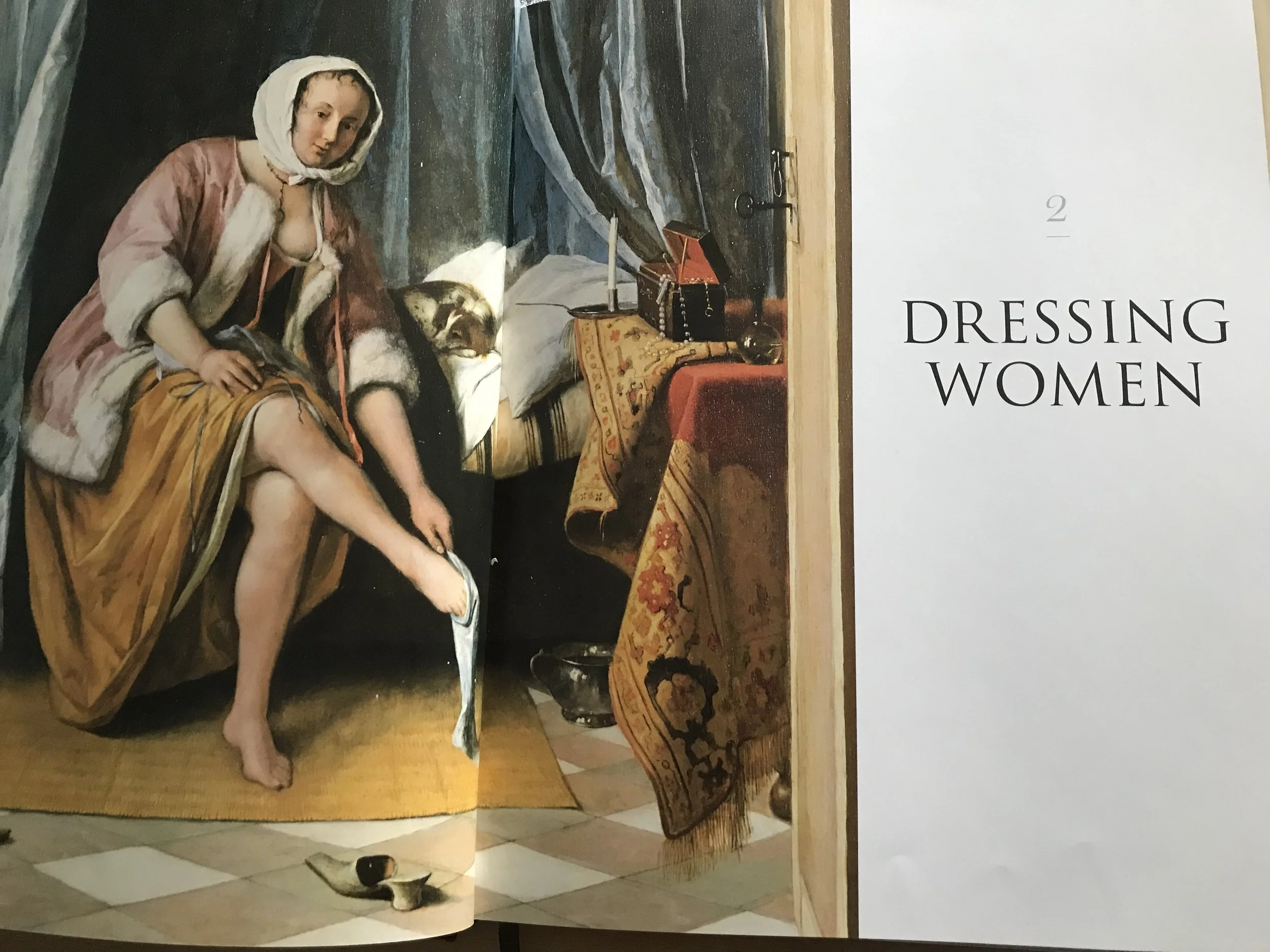Book review: In Fine Style
/Following a short break in the blog posts because of a leak that caused the removal of all of our furniture and wooden floor for several weeks, this post is a review of a book that I acquired five years ago and have used extensively since. I suspect it is not well known, so thought I would review it for the Tudor, Elizabethan, early Stuart and English Civil War enthusiasts amongst you.
Just occasionally, you notice that an exhibition is being put on local to your home that really pushes all of your buttons. The exhibition called “In Fine Style, The Art of Tudor and Stuart Fashion”, put on by the Royal Collection Trust at Holyrood House in Edinburgh in 2014, did just that for me. The lasting element of the exhibition was a book by the same name, written by Anna Roberts and published by The Royal Collection Trust. The book acts as a very complete exhibition guide book but so much more besides.
The exhibition sought to use paintings, sketches and artifacts from across the royal collections to demonstrate how the elite members of both Tudor and Stuart societies used luxurious clothing to convey important messages about wealth, gender, age, social position, marital status and religion. It traced changing tastes in fashionable attire in Great Britain in the 16th and 17th centuries, as shown by surviving art and artifacts. Using paintings, drawings and miniatures from the Royal Collection, and a number of rare surviving examples of clothing and accessories from the Royal Wardrobe, it explored the style of the rich and famous in both of these periods of history. Attending the exhibition gave three significant levels of enjoyment - seeing the sweep and change of fashionable clothing across 100 years during which portraiture focused in great detail on the clothing being worn; admiring the amazing skill of the Tudor and Stuart artists who developed a photo-realistic style; and seeing the surviving items and records from the Royal Wardrobe presented in context rather than as isolated items to admire.
The book by Anna Roberts presents most of the paintings and items that were on display during the exhibition, not like a guide to the exhibition but as an exploration of these topics in their own right. It is arranged in chapters dealing with the practical (how to dress a woman) and the philosophical (the meaning of dress and the role of art in fashion). It is a large format book (its the one on the very bottom of the pile of books in the thumbnail photo!) and fully uses this size to provide excellent visual content to accompany the narrative in the form of large colour photos of the paintings, clothing and other artifacts.
Contents Page from “In Fine Style, The Art of Tudor and Stuart Fashion”
Unlike an exhibition guide, Anna Roberts leads the reader through an explanation of the connections between the items on display, not fearing to show a small portion of a painting or a close-up of a clothing detail to demonstrate a point. Often, as in the photo of the doublet below, the full item is pictured but not always together and some paintings are repeated several times with different parts of the painting shown on different pages.
Photo of Doublet Associated with Charles 1
Detail of the Doublet Buttonholes and Embroidery
In the Dressing Women chapter, every element of clothing, shoes, head-wear and accessories are covered, from the shift outwards, with each element having a basic description of the article and how it changed over the period covered by the book. These are not descriptions of specific items, but instead general descriptions of, for example, shifts and how they were worn and washed, how they were decorated, what they were typically made from and so on. Occasionally, this will be typified by photos of one of the articles in the exhibition. The Dressing Men and Dressing Children chapters are similar in style and content. Many of the photos are full page photos and all are in full colour with attribution for the article, its date and where it is normally held.
The chapter on Painting Dress looks at how the Tudor and Stuart artists went about creating these amazingly detailed and realistic paintings. It follows the steps from sketches with detailed notes of fabrics, colours and trims through to the final addition of very realistic lace collars and cuffs. The difficulties and practicalities of painting silk so that it flows across the sitter or stands in stiff folds and depicting small puffs of linen poking out through slashed sleeves are covered. Extreme close-up photos, like the one below, show the care that the artists took in painting the lace collars of some of the wealthiest people.
Photo of how Lace was Painted in one Portrait of Queen Elizabeth 1
I truly recommend this book for those that want to extend their knowledge of how fashions changed over the Tudor and Stuart periods, or who have a love of the fine art and existing objects from that time. This is not a pattern book nor an academic study of specific types of clothing but it has a lot to recommend it to those who want to portray 16th and 17th century living, whether wealthy or not. There are so many details that pass down the social scale that you are likely to find something that helps - or you can simply enjoy the beautiful photographs of great works of art!
Photo of the Painting “Woman at her Toilet”

